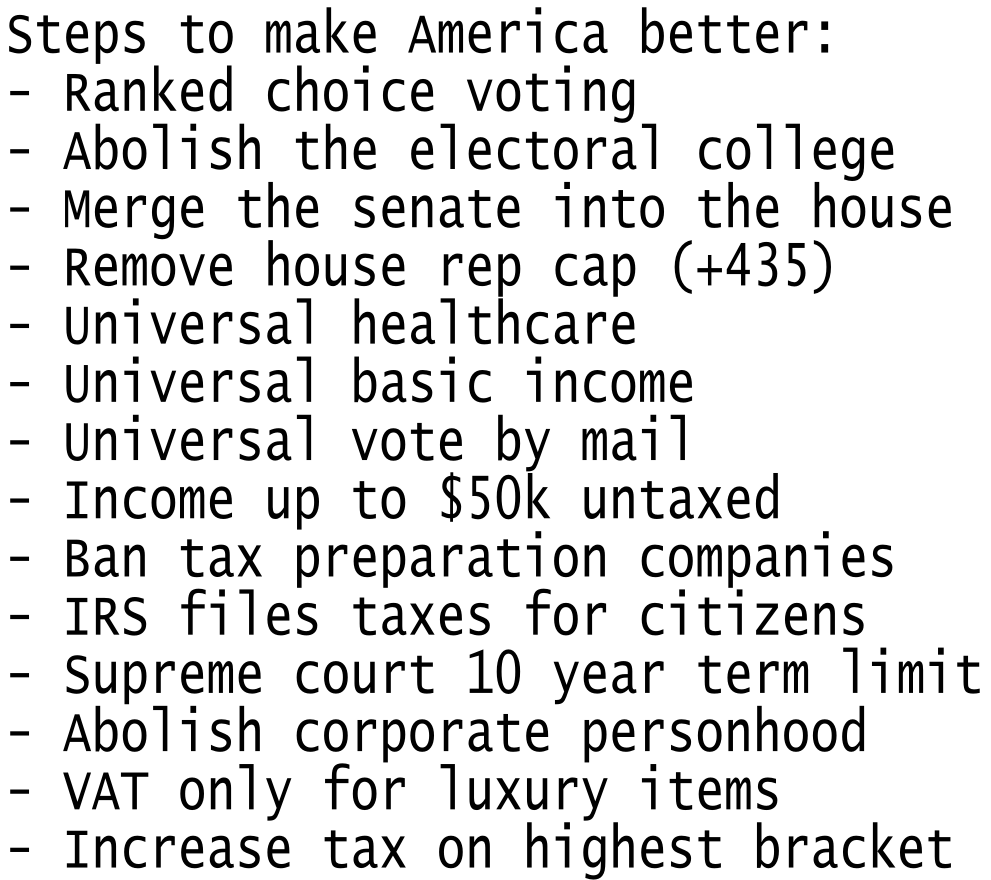this post was submitted on 07 Mar 2024
2 points (100.0% liked)
General Discussion
12139 readers
188 users here now
Welcome to Lemmy.World General!
This is a community for general discussion where you can get your bearings in the fediverse. Discuss topics & ask questions that don't seem to fit in any other community, or don't have an active community yet.
🪆 About Lemmy World
🧭 Finding Communities
Feel free to ask here or over in: [email protected]!
Also keep an eye on:
For more involved tools to find communities to join: check out Lemmyverse!
💬 Additional Discussion Focused Communities:
- [email protected] - Note this is for more serious discussions.
- [email protected] - The opposite of the above, for more laidback chat!
- [email protected] - Into video games? Here's a place to discuss them!
- [email protected] - Watched a movie and wanna talk to others about it? Here's a place to do so!
- [email protected] - Want to talk politics apart from political news? Here's a community for that!
Rules
Remember, Lemmy World rules also apply here.
0. See: Rules for Users.
- No bigotry: including racism, sexism, homophobia, transphobia, or xenophobia.
- Be respectful. Everyone should feel welcome here.
- Be thoughtful and helpful: even with ‘silly’ questions. The world won’t be made better by dismissive comments to others on Lemmy.
- Link posts should include some context/opinion in the body text when the title is unaltered, or be titled to encourage discussion.
- Posts concerning other instances' activity/decisions are better suited to [email protected] or [email protected] communities.
- No Ads/Spamming.
- No NSFW content.
founded 2 years ago
MODERATORS
you are viewing a single comment's thread
view the rest of the comments
view the rest of the comments

Great list overall but I'm wondering what you mean by reasonable behaviors in regards to having kids or not? I understand the notion of encouraging and discouraging behaviors by legislation, but that can be difficult to negotiate/implement.
Honestly I included both because I wanted to include people who elect not to have children. Currently, the child credits are in place to strong arm people into having children, and there is no upper bound on the number of children it covers. This can really be a financial impediment for people who either have chosen not to have children or have not been able to. Conversely, families who elect to have an arbitrarily large number of children end up placing a disproportionately larger burden on social infrastructure. They elevate the load on schools more than other families, they consume more food than other families, etc. By tuning the how the parameter is calculated you can provide some refund for having no children, increase it to a point for small numbers, then level off or even reverse it as the number increases. Thus this provides some economic benefit for people making the very ecologically and financially rational decision not to have children, still helps ease the financial burden for people who have small numbers of children, and holds people who incur a higher social burden by their decision have many children. I am specifically leaving out numbers on these as the moral and ethical decisions of what constitutes 'few' and 'many' for this discussion are something that can and should be actively debated to determine the social validity. Also, it could be done in a way which would allow the tuning to be adjusted based on social needs for population growth.